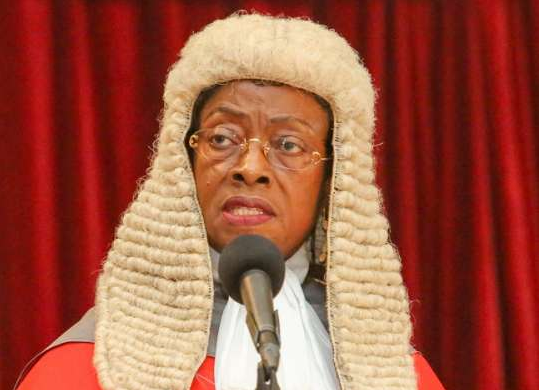
The honourable, dishonourable and vulnerables
This week, the Chief Justice, Ms Sophia Akuffo, had her eyes on two Members of Parliament (MPs). A suit had been initiated on behalf of these MPs.
Advertisement
They were seeking the nullification and revocation of the appointment of the Minister for Gender and Social Protection, Madam Otiko Afisa Djaba.
The reason? Well, the MPs assert that she did not undertake the mandatory national service scheme and to that extent she is not qualified to be a minister of state.
For starters, the writ was struck out. But there is more. The tables turned. Something on the face of the writ had caught the attention of the Supreme Court Justices.
This had to do with the manner in which the names of the two MPs were captured on the court document.
The Chief Justice questioned why these MPs had the word “Honourable” before their names. She was reported to have said that the abuse of the word “honourable” was dishonourable.
This call and conclusion is clearly not new. It has been made time and again. Many have long questioned the propriety of MPs using the word “Honourable” in the way that they use them.
But it is not only the MPs who err in the use of the word “honourable”. The media is the worst culprit. Run a simple google search. You will find out that in addition to the MPs calling themselves “honourable”, it is the media that ends up validating this practice.
We learn from what we hear and see on the media. And 9.5 times out of 10, you will find out that the media is culpable in the introduction of the word “honourable” before the name of the MP. And for sure, the MPs like it.
Professor Kwesi Yankah in a series of articles entitled “Dubious academic titles and the politics of honour” condemned the misapplication and misappropriation of titles by segments of society.
Of the word “honourable”, he said: “In Ghana, the title honourable, has been applied to Ministers of State, Members of Parliament, and lately even to District and Municipal Chief Executives, and assembly men and women.”
He asserted that “In traditions where we adopted these terms, the title Honourable referred to the office, and not the person or occupant. Thus one may have Mr Asimesi, Honourable Member of Parliament for Aowin, or Bolga, and not Honourable Asimesi.”
Compared to some other countries, Ghanaians are not necessarily big on titles. But the craze for titles is gradually building up. And as you may have noticed, the National Accreditation Board pops up every now and then to discredit the sources of some honorary titles.
Aside the media, there is an important group of people who have deepened the practice of making the word “honourable” the first name of most MPs. I choose to call them the “vulnerable”. These are persons who rely on the MPs for support or favour in one way or the other.
Many of these people do not necessarily think that all MPs are all honourable in the strict sense of it. Probably, not many of these people desire to call MPs by the prefix honourable. But they recognise that simply saying honourable can get them far.
The ascendancy of the word honourable as a title has probably very little to do with what people think of politicians and MPs specifically. The vulnerable understand that in order for them to get what they want from their MPs, the word “honourable” is an indispensable component of it. The MPs are humans. And they sometimes fall for it.
Who will not fall for a group of young men jumping and shouting with gusto “honourable, honourable, honourable” at the sight of you. Very few will be able to see through it. These shouts will usually be followed by a request for cash or support.
The manner in which the request is executed varies. It can go from being very direct to being obscure. For instance, the constituents may say “Honourable, show us something” or “show us some love” or in more direct terms “Honourable, get us something to buy some food.”
Other times, it is the MP who may read the intentions of the constituents and give them “something” after the shower of praise.
The word “honourable” is the trump card that the vulnerable have over their elected representatives. And that is not going to change simply because the Chief Justice or some respected academic condemns it.
The challenge is more complicated than a case of either a misappropriation or misapplication of a title. It goes deeper and touches on the issues of survival, patronage and weak accountability systems.
As long as there are people with needs and also as long as the MPs are in a position to assist in one way or the other, the vulnerable will also call them honourable.